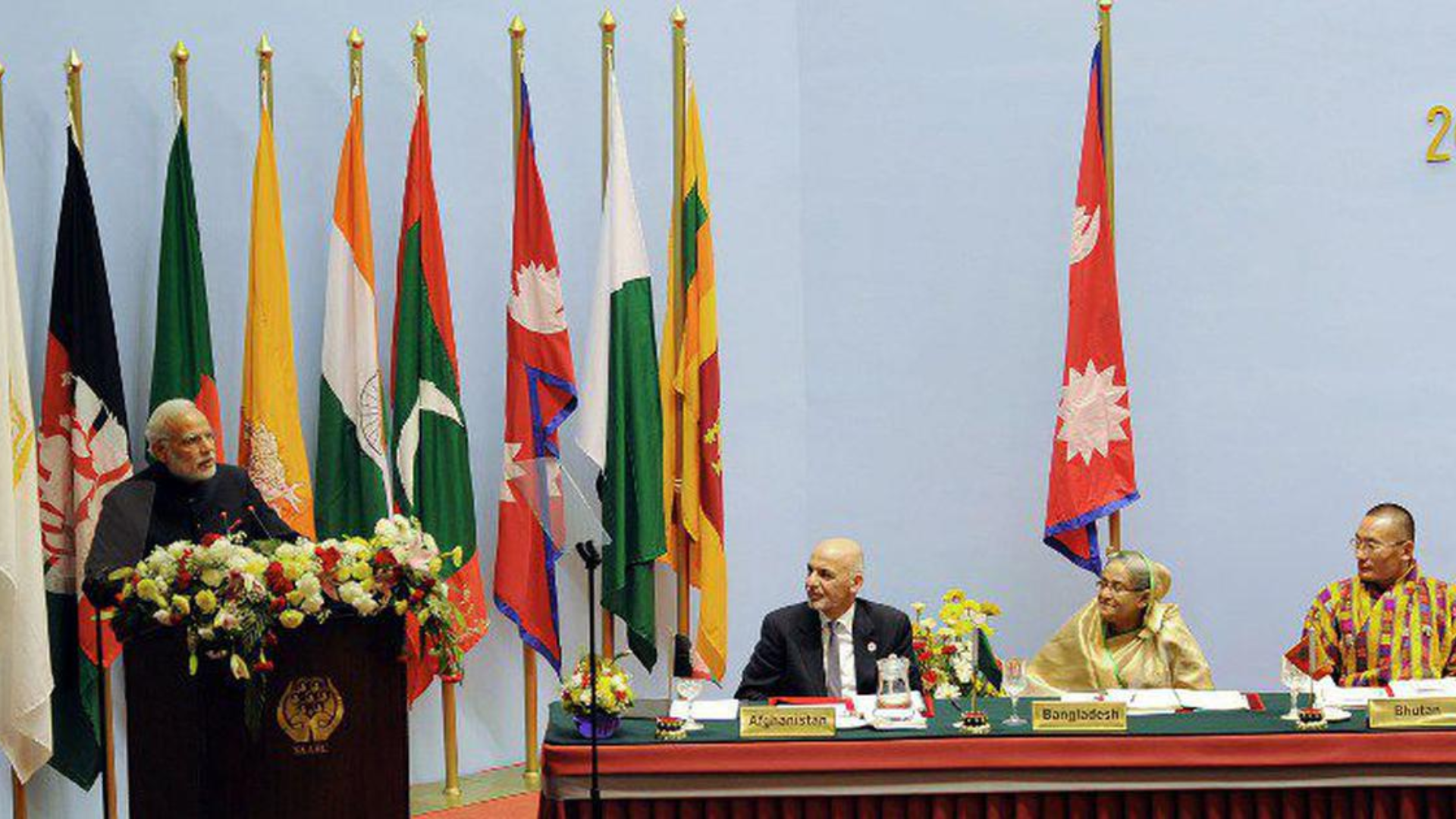In recent years, India has consistently demonstrated its commitment to regional solidarity through a series of strategic and humanitarian initiatives aimed at bolstering its ties with neighboring countries. This policy, often referred to as the “South Asia First” policy, has seen India step up as a first responder in times of crisis, providing essential aid and support to its neighbors. The initiatives not only underscore India’s role as a regional leader but also highlight its dedication to fostering stability and prosperity across South Asia.
DURING COVID CRISIS: VACCINES SENT
India’s proactive stance was also evident during various crises that struck its neighbors, reinforcing its position as a reliable partner in times of need. The country’s response to the COVID-19 crisis demonstrated a robust commitment to its South Asian neighbors, reinforcing the nation’s role as a regional leader and humanitarian provider. At the height of the COVID-19 pandemic, India emerged as a crucial source of vaccines for several neighboring countries, emphasizing its role as a regional health security provider. In a remarkable display of solidarity, India distributed vaccines across several South Asian countries. Bangladesh received a significant share with 280,828 doses, followed by Myanmar with 212,000 doses. Nepal benefited from 94,990 doses, while Bhutan was supplied with 5,500 doses. The Maldives and Mauritius received 3,120 and 4,000 doses respectively. Even the small island nation of Seychelles was not overlooked, receiving 500 doses, and Sri Lanka was given 12,640 doses. This distribution was not just a gesture of goodwill but a strategic move to ensure the health and safety of the region, reflecting India’s deep commitment to its neighbors during one of the most challenging times in recent history. It highlighted India’s strategic focus on ensuring the health and safety of its regional partners during an unprecedented global health crisis.
THE FIRST RESPONDER: INDIA’S PROMPT ACTION IN REGIONAL EMERGENCIES
India’s role as the first responder during crises in South Asia is a testament to its commitment to regional stability and development. During Sri Lanka’s financial crisis in 2023, India extended substantial support with a financial aid package worth $3.9 billion. In addition, petroleum products valued at $500 million were provided to help stabilize the country’s energy needs, alongside credit facilities amounting to $1.5 billion. To bolster public transport infrastructure, India donated 75 buses, ensuring continued mobility for the Sri Lankan populace.
In the Maldives, during the COVID-19 crisis, India extended a $150 million currency swap support, reflecting its financial solidarity. Moreover, during the water crisis in Male, 375 tonnes of drinking water were flown in, underscoring India’s swift humanitarian response.
Following the devastating earthquake in Nepal in 2024, India pledged $75 million in financial assistance to rebuild infrastructure and undertook the reconstruction of 50,000 houses in the affected districts of Gorkha and Nuwakot. This aid was pivotal in Nepal’s recovery efforts, showcasing India’s role as a reliable partner in times of need.
THE SAGAR VISION EXPLAINED
The South Asia First policy is further encapsulated in India’s SAGAR (Security and Growth for All in the Region) Vision, launched in 2015 during Prime Minister Narendra Modi’s visit to Seychelles, Mauritius, and Sri Lanka, epitomizes India’s strategic approach to fortifying economic and security connections with its maritime neighbors. The SAGAR Vision aims to leverage the blue economy, address regional issues, provide humanitarian assistance during disasters, and counter Chinese influence in the Indian Ocean region.
The impact of this vision is evident as India was granted observer status in the Indian Ocean Commission (IOC), reinforcing its role as a key player in the maritime domain and emphasizing its commitment to collaborative growth and security in the region.
MODI OATH: THE INTERNATIONAL GUEST-LIST
In a symbolic move reflecting the strength of India’s diplomatic ties with its South Asian neighbors, several prominent leaders were invited to attend Prime Minister Modi’s oath-taking ceremony. The guest list included Ranil Wickremesinghe, President of Sri Lanka; Dr. Mohamed Muizzu, President of the Maldives; Mr. Ahmed Afif, Vice-President of Seychelles; Sheikh Hasina, Prime Minister of Bangladesh; Pravind Kumar Jugnauth, Prime Minister of Mauritius; Pushpa Kamal Dahal ‘Prachanda’, Prime Minister of Nepal; and Tshering Tobgay, Prime Minister of Bhutan.
This assembly of leaders not only underscored the significance of India’s relationships within the region but also highlighted the collective commitment towards a stable and prosperous South Asia.
India’s proactive and comprehensive support to its South Asian neighbors during crises, coupled with its strategic initiatives like the SAGAR Vision, exemplifies the “South Asia First” policy. This approach ensures that India remains at the forefront of fostering regional cooperation, stability, and growth, reinforcing its role as a benevolent regional leader dedicated to the collective well-being of South Asia.





















